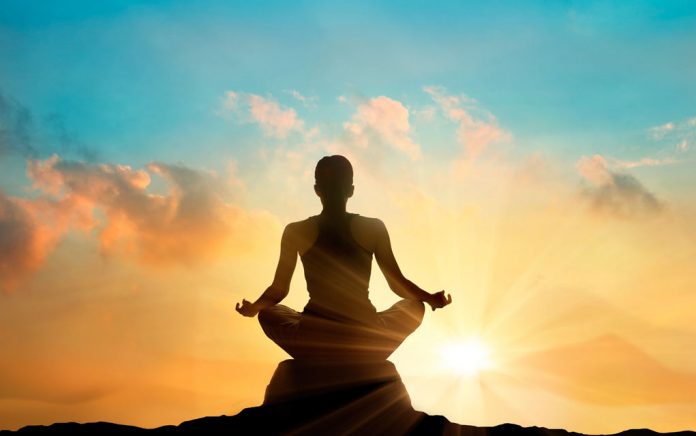
So, you’ve made time to meditate. Now what?
You can use meditation to combat stress, foster better physical health, resolve issues with chronic pain, or even simply gain a better night’s sleep. It can also make you feel as if you are more present in the moment, allowing you to be more at peace.
Meditation (on a deeper level) can be viewed as a sort of doorway to the unknown. With daily meditation, many people gain a sense of the mystery involving who we actually are and why we’re here. It’s introspective and calming.
But making time is just the beginning. Once you set time aside, you need to actually follow through with your plans. Here’s how to stay on track.
Posture
It doesn’t matter if you sit with your legs crossed on the floor or if you are more comfortable using a chair. Find the position that suits you best and settle in. You need to ensure that your spine is straight and your head is held with your jaw being at a 90 degree angle to the floor.
This posture is important; if you slouch, your mind may wander more easily as your muscles fight each other to keep you upright.
Your body and mind are intertwined. If you ensure that your body is balanced well, your mind will be, too.
Eyes
Try to keep your eyes open, rather than closing them completely. This keeps you present in the moment (not to mention preventing you from dozing off). Keep your eyes lowered and unfocused.
That said, some meditators may find that closed eyes make it easier to drift on stories and thoughts. If that’s the case for you, feel free to change your style. Being comfortable is important, and if closing your eyes allows you to be comfortable, go with it.
Focus
In our typical consciousness, we tend to not really be present. As an example, you can be driving your car but also replaying events from the day in your mind. You might get where you are going and not even really have paid attention to the drive at all.
This distinctly human phenomena is a type of dissociation, and is a safety net for the busy brain. But it can also prevent us from really seeing our lives at face value.
Meditation can be a fantastic way to wake ourselves up to our lives. Most of the time, we can miss what’s really going on because we’re somewhere else in our heads.
Focus (in terms of meditation) means paying soft, gentle attention to what you have placed right at the center of your awareness. If you struggle with it, don’t fight yourself; just gently pull your focus back to something steady, like your breath. You deserve patience!
Enjoyment
Most important in meditation is personal enjoyment. If you’re not enjoying your practice, it may be time to mix it up a bit. Try meditating with a bit of a smile, or on positive thoughts and imagery. This can make such an improvement in your day.
















